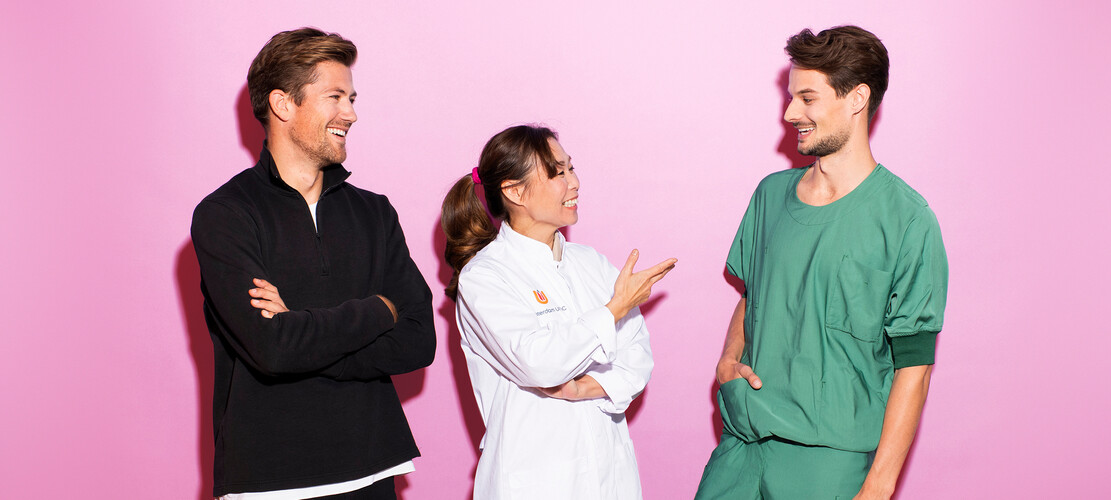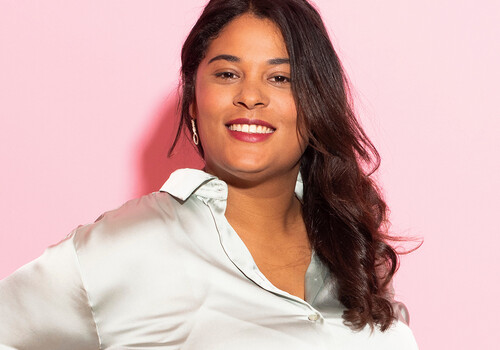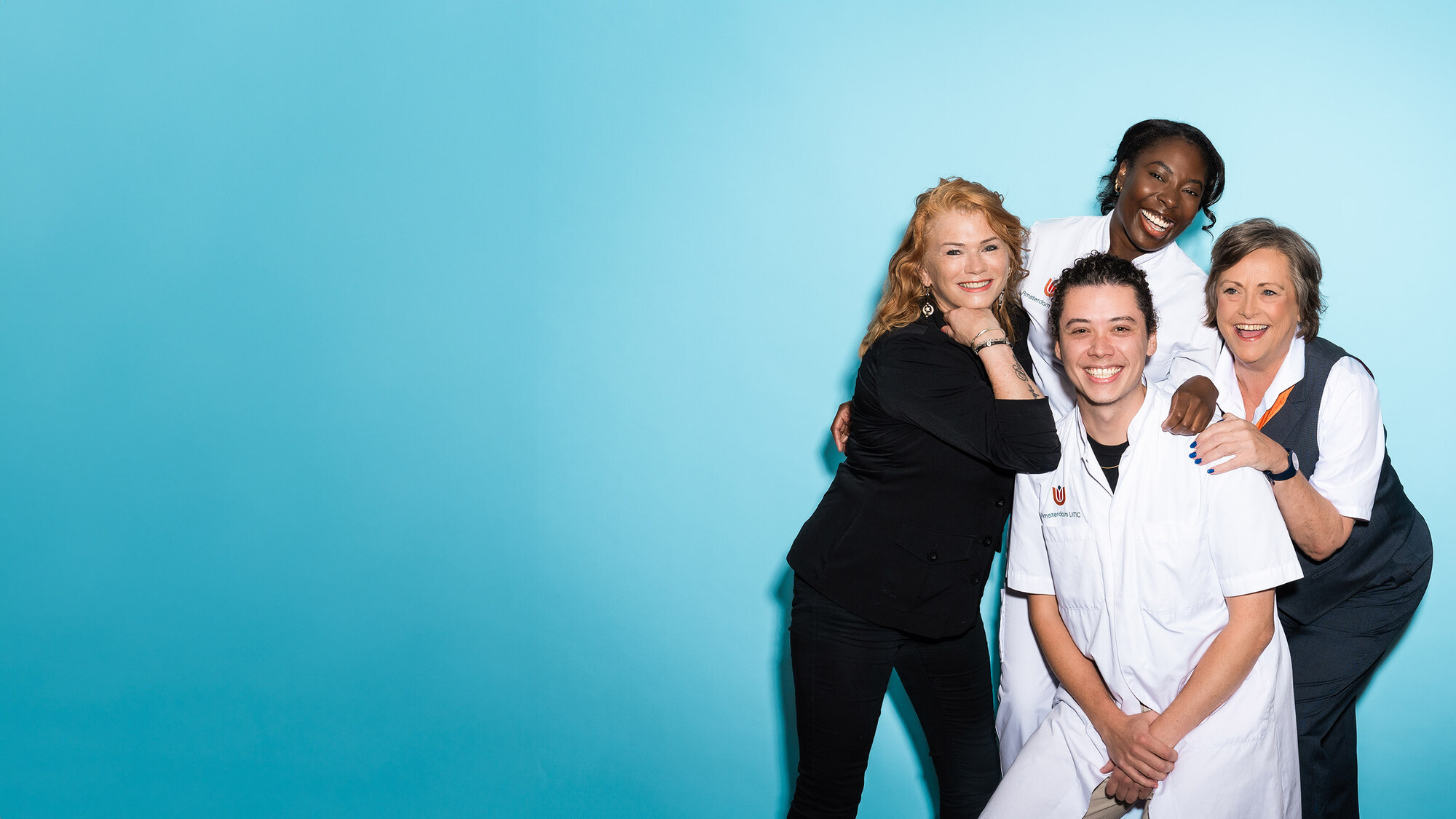
PhD candidate multi-scale (MRI-microscopie) research in neurodegeneration
Dementia is a global healthcare crisis, with an estimated 55 million people affected around the world. To monitor disease progression and possible treatment strategies, non-invasive brain visualization tools are needed, reflecting underlying neurobiological change. With the proposed combined post-mortem MRI and microscopy approach, we aim to create pathology-sensitive MRI markers for implementation in the clinic.
Over the past few years we have set up a unique collection of post-mortem neuroimaging data (7T ex-vivo and 3T in-situ) in combination with brain tissue, to answer the following objectives:
- How can we best connect microscopy, ex-vivo and in-situ MRI?
- To ascertain which neuroimaging modalities are most sensitive to specific neuropathological disease states, as defined by the distribution and burden of proteinopathy and other markers.
- To address heterogeneity with pathology-defined neuroimaging patterns.
The project will be a collaboration with researchers at Leiden University Medical Center and the University of Pennsylvania (USA). By integrating different expertises and multisource data (clinical, radiological, histopathological), the project will result in new fundamental knowledge leading to improved interpretation of imaging datasets, relevant for the clinical setting.
As a PhD candidate your main duties and responsibilities are:
- Setting up and conducting the research;
- Collecting postmortem MRI scans;
- Performing immunohistochemical stainings at the lab;
- Performing MRI data analysis;
- Statistically analysing of MRI and neuropathology data;
- Writing scientific articles based on the results of your research;
- Making scripts publicly available through our GitHub site;
- Supervising students and some teaching duties.
We are looking for an enthusiastic, skilled and creative PhD candidate with experience in immunohistochemistry in neurodegenerative duseases, and would like to gain more expertise in neuroimaging. You have:
- A recent Master's degree in Neuroscience, Biomedical Science, or a related field with a proven interest in neurodegenerative diseases;
- Lab experience with immunohistochemistry on human brain tissue;
- Some programming skills is an advantage;
- Affinity with neuroimaging or eager to learn more;
- You are highly motivated, creative and willing to work with human postmortem MRI scans and brain tissue;
- You are communicative, well organized, independent and enthusiastic.


- A flying start to your career in scientific research;
- Plenty of room for your drive to shape tomorrow's healthcare;
- Working on large-scale and in-house research, with motivated colleagues from all over the world;
- You will be employed by Amsterdam UMC Research BV;
- A contract for 12 months, with the intention to extend for a total of 4 years. The Guideline PhD contract applies to this vacancy.
- Salary scale OIO: € 3.108 to € 3.939 gross based on full-time employment (depending on experience) and a year-end bonus of 8.3%. Calculate your net salary here;
- Holiday hours: 190.4 per year for fulltime and a possibility to save additional hours;
- Pension accrual with BeFrank, a modern, comprehensible and fairly priced pension;
- For >7 km each way, 100% reimbursement for public transport travel costs and, for private transport, €0.18 per km up to a maximum of 40 km each way;
- Do you prefer walking or cycling? Take advantage of our good bike scheme. Moreover, you will receive a reimbursement of €0.18 per km.
Watch this video with more information about joining Amsterdam UMC Research BV.
As a PhD student, you will work in the Neuroscale team of the section Clinical Neuroanatomy and Biobanking at the department of Anatomy and Neurosciences, Amsterdam UMC, location VUmc. Our mission is to unravel the pathological sensitivity of neuroimaging outcome measures in neurodegenerative diseases, to better understand the application of MRI in research and the clinical setting.
Moreover, you will contribute to the program Neurodegeneration and Brain Imaging at Amsterdam Neuroscience.
Amsterdam UMC Research BV supports non-profit scientific research. In doing so, we provide researchers with everything they need to excel. Our principal investigators (PIs) and project leaders offer support in the field of project management, finance and human resources. In medical scientific research projects, legal support is also provided.
Watch the video to find out more.
Applications are processed continuously. If a suitable candidate is found, the vacancy will be closed early.
If you have any questions about the role, please contact Dr. L. Jonkman via le.jonkman@amsterdamumc.nl.
For more information about the application procedure, please contact Chey Edwards, recruitmentadvisor, via c.i.edwards@amsterdamumc.nl.
A reference check, screening and hiring test may be part of the procedure. Read here whether that applies to you. If you join us, we ask you for a VOG (Certificate of Good Conduct).
Internal candidates will be given priority over external candidates in case of equal suitability.
Acquisition in response to this vacancy is not appreciated.

